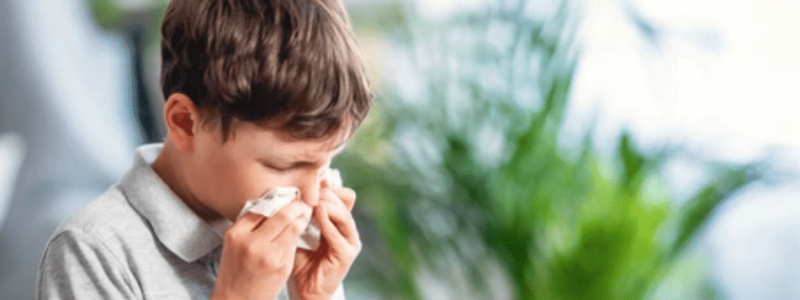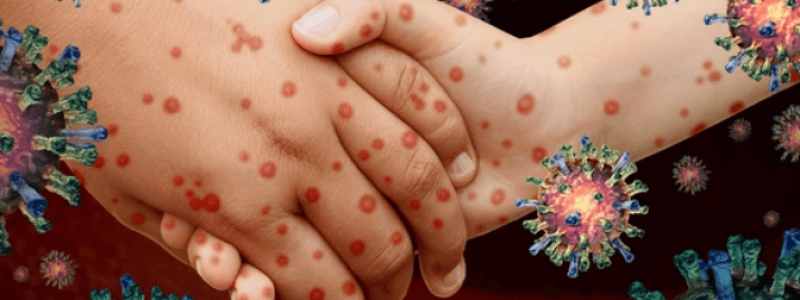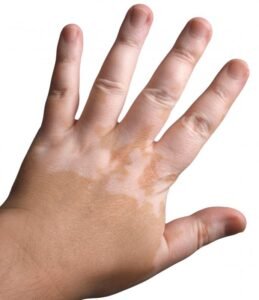Introduction
Viral infections are a persistent challenge in healthcare, affecting millions worldwide each year. From the common cold to more serious conditions like influenza and herpes, these infections can disrupt your life and, if left untreated, lead to complications. At the House of Skin Clinic in Ludhiana, Dr. Parwaaz Matharoo, a leading viral infection doctor in Ludhiana, combines his expertise with patient-focused care to help you manage viral infections effectively.
Understanding Viral Infections
Viral infections are caused by viruses, microscopic agents that invade living cells to reproduce. Unlike bacteria, viruses aren’t living organisms and rely on host cells to multiply. Once inside the body, they can cause a variety of symptoms depending on the virus type and the part of the body affected.
Common Types of Viral Infections

- Respiratory Viral Infections: Include the common cold, influenza, and respiratory syncytial virus (RSV), primarily affecting the respiratory system.
- Gastrointestinal Viral Infections: Norovirus and rotavirus are common causes, leading to symptoms like diarrhea and vomiting.
- Dermatological Viral Infections: Includes herpes simplex virus (HSV), varicella-zoster virus (chickenpox and shingles), and human papillomavirus (HPV).
- Systemic Viral Infections: Viruses like HIV and hepatitis B and C affect multiple organs and systems, often leading to chronic conditions.
Symptoms of Viral Infections
Viral infections present various symptoms based on the type of virus and the infected area. Common symptoms include:
- Fever: A common response to infection, signaling that the body is fighting off the virus.
- Fatigue: Persistent tiredness is often one of the earliest symptoms.
- Coughing and Sneezing: Respiratory viruses typically cause these symptoms as they affect the airways.
- Skin Rashes: Dermatological viral infections often present with rashes or blisters.
- Gastrointestinal Distress: Symptoms like nausea, vomiting, and diarrhea are common with gastrointestinal viruses.
Understanding these symptoms can help you seek timely medical advice and prevent the spread of the virus to others.
How to Treat Viral Infections Like a Pro
Treating viral infections requires a combination of medical expertise, proper hygiene practices, and a strong immune system. Here’s how Dr. Parwaaz Matharoo recommends managing viral infections:
1. Consult a Specialist Early
Early consultation with a specialist is crucial. Dr. Parwaaz Matharoo, a viral infection doctor in Ludhiana, emphasizes the importance of an accurate diagnosis and tailored treatment plan. Delayed treatment can lead to complications, making early intervention vital.
2. Rest and Hydration
Rest and hydration are essential components of recovery from viral infections. Adequate rest allows your body to direct its energy towards fighting the virus, speeding up the healing process. Staying hydrated is equally important, as it helps to thin mucus, reduce fever, and prevent dehydration, especially in cases involving symptoms like fever or diarrhea.
3. Medication and Antiviral Treatments
Medication and antiviral treatments play a critical role in managing certain viral infections. While antibiotics are ineffective against viruses, antiviral medications can help reduce the severity and duration of specific infections, such as influenza, herpes, or HIV. These treatments work best when started early in the course of the illness.
4. Boost Your Immune System
A strong immune system is essential for fighting off infections. Dr. Parwaaz Matharoo recommends:
- Balanced Diet: Include a variety of fruits, vegetables, and whole grains to support immune function.
- Regular Exercise: Moderate exercise can improve immune function by promoting good circulation, which allows cells and substances of the immune system to move through the body efficiently .
- Adequate Sleep: The National Sleep Foundation recommends 7-9 hours of sleep per night for adults to help maintain a healthy immune system .
- Supplements: Consult your doctor before starting supplements like Vitamin C, Vitamin D, and zinc, which have been shown to support the immune system.
5. Practice Good Hygiene

Preventing the spread of viral infections is crucial. Here’s what you can do:
- Frequent Handwashing: Wash your hands with soap and water for at least 20 seconds, especially after coughing, sneezing, or touching surfaces in public places. The CDC emphasizes handwashing as one of the most effective ways to prevent the spread of infections .
- Use of Hand Sanitizer: When soap and water aren’t available, use a hand sanitizer with at least 60% alcohol.
- Avoid Touching Your Face: Viruses can enter your body through the eyes, nose, and mouth, so avoid touching your face with unwashed hands.
- Disinfect Surfaces: Regularly clean and disinfect commonly touched surfaces, such as doorknobs, light switches, and phones.
6. Isolation and Avoiding Public Places
If you’re infected, it’s crucial to avoid public places and stay isolated from others, particularly those at higher risk, such as the elderly or those with compromised immune systems. This practice will help prevent the spread of the virus to others.
7. Monitor Symptoms
Keep track of your symptoms. If they worsen or you develop new symptoms, seek medical advice promptly. This is especially crucial for individuals with underlying health conditions or those with weakened immune systems.
When to Seek Emergency Care
Most viral infections resolve on their own, but some may require emergency care. If you experience any of the following, seek urgent medical attention:
- Difficulty Breathing: This could indicate a severe respiratory infection or complications.
- Persistent High Fever: A fever that doesn’t subside with medication could be a sign of a serious infection.
- Chest Pain: This may be related to viral myocarditis or other serious conditions.
- Severe Dehydration: If you’re unable to keep fluids down or show signs of dehydration (e.g., dark urine, dizziness), it’s crucial to get medical help.
- Confusion or Loss of Consciousness: These symptoms can indicate a serious neurological complication and require urgent care.
Preventive Measures: Protecting Yourself and Others

Preventing viral infections is the best treatment. Dr. Parwaaz Matharoo recommends the following:
- Vaccination: Vaccines are one of the most effective ways to prevent viral infections. Ensure you and your family are up-to-date with recommended vaccines, including those for influenza, HPV, and other common viral infections.
- Healthy Lifestyle Choices: Maintain a healthy lifestyle to keep your immune system strong. This includes eating a balanced diet, exercising regularly, getting enough sleep, and managing stress.
- Avoid Close Contact with Sick Individuals: If someone around you is sick, try to maintain distance, avoid sharing personal items, and practice good hand hygiene to reduce your risk of infection.
- Educate Others: Spread awareness about the importance of hygiene, vaccination, and timely medical intervention. The more people understand how to prevent and manage viral infections, the less likely these infections are to spread.
The Role of House of Skin Clinic in Managing Viral Infections
Viral infections can range from mild inconveniences to serious health concerns, but with the right approach, they can be effectively managed. By following the advice outlined in this guide and seeking professional medical care from a viral infection doctor in Ludhiana, such as Dr. Parwaaz Matharoo at the House of Skin Clinic, you can treat viral infections like a pro.
Conclusion
Viral infections can range from mild inconveniences to serious health concerns, but with the right approach, they can be effectively managed. By following the advice outlined in this guide and seeking professional medical care from a viral infection doctor in Ludhiana, such as Dr. Parwaaz Matharoo at the House of Skin Clinic, you can treat viral infections like a pro.
FAQs
Viral infections usually last from a few days to a couple of weeks, depending on the virus. For personalized care, consult Dr. Parwaaz Matharoo, a leading viral infection doctor in Ludhiana.
Treatment involves rest, hydration, and sometimes antiviral medication. Dr. Parwaaz Matharoo at House of Skin Clinic offers tailored care to help you recover quickly.
The best medicine varies by infection; antiviral drugs like Tamiflu or acyclovir are common. Dr. Parwaaz Matharoo can recommend the most effective treatment based on your condition.




